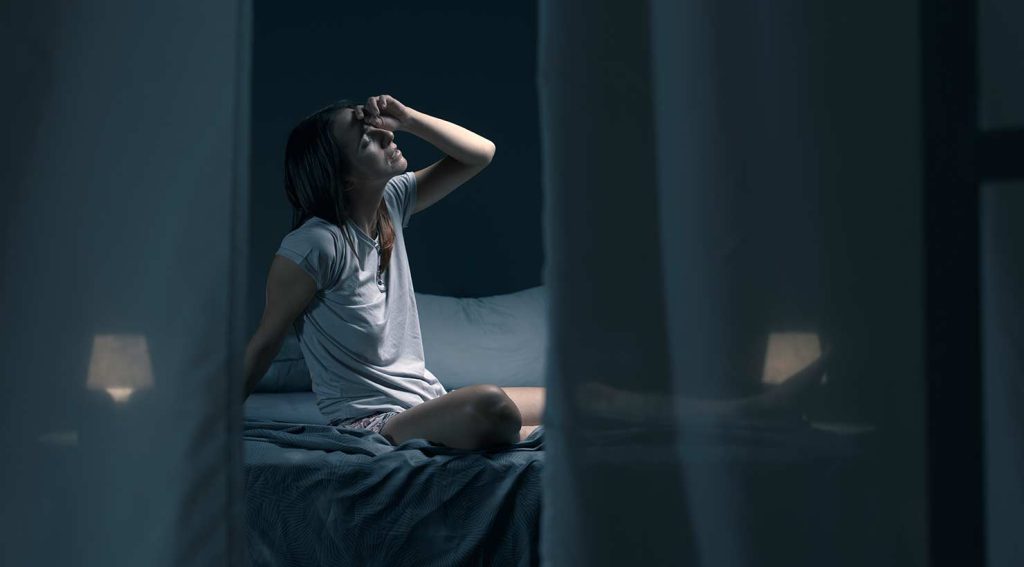Are Menopause Symptoms Worse at Night

Imagine waking up in the middle of the night, drenched in sweat and feeling like you’re on fire. This is the reality for many women who go through menopause, a natural transition that comes with a host of unpleasant symptoms. But why do some women suffer worse than others?
The answer may lie in how they cope with stress. A recent study in the Journal of Women’s Health revealed that women who reported higher levels of stress also experienced more severe and frequent menopausal symptoms, such as hot flashes and night sweats (Arnot et al., 2021).
This suggests that the way we live today, with all the pressures and challenges we face, may make menopause harder than ever before.
Managing Night Time Menopause Symptoms
While it’s not always possible to escape the demands of life, it’s important to be mindful of daily habits, such as diet and stress levels, that can impact menopause symptoms.
One simple thing we can do is drink more water, as estrogen helps our body stay hydrated and losing it can make us more prone to hot flashes.
Another thing we can do is cut down on caffeine, as it puts a strain on our liver and drains our energy. A study in the Journal of Women’s Health showed that women who drank more caffeine had worse menopausal symptoms than those who drank less (Faubion et al., 2015).
Maintaining Balanced Blood Sugar Levels
Keeping blood sugar levels in balance is also crucial, as spikes and dips can trigger symptoms like panic attacks, anxiety, and heart palpitations. These symptoms can be similar to those of menopause, making it harder to cope.
A study in the Journal of Women’s Health found that women with diabetes had more hot flashes than those without (Liu et al., 2012). To avoid blood sugar fluctuations, it’s advisable to eat small, frequent meals and steer clear of sugary foods.
Breathing and Relaxation for Better Sleep
Breathing properly is essential for keeping our energy levels high. When we breathe shallowly, we deprive our cells of oxygen, which can make us feel tired and sluggish. A study in Frontiers in Neurology found that deep breathing exercises improved sleep quality and reduced stress levels in menopausal women (Nasehi et al., 2020). Deep breathing can also help with hot flashes and night sweats, according to the North American Menopause Society (NAMS).
There are many ways to practice deep breathing, such as paced breathing, guided imagery, massage, and progressive muscle relaxation. You can find books and online resources, such as YouTube, that offer breathing exercises.
It’s also important to take some time to relax and disconnect from the world every day. Many women neglect their own needs and end up feeling exhausted and overwhelmed. Even a few minutes of relaxation can make a big difference for your menopause symptoms and your overall well-being.
How HRT Can Improve Your Sleep Quality During Menopause
Menopause-associated sleep issues can also be resolved through Hormone Replacement Therapy (HRT). HRT is an effective way to restore hormonal balance and help you get a better night’s rest.
At Golden Leaf Health, we understand how challenging and sometimes distressing menopause can be – that’s why we specialize in providing personalized support to help you weather the changes. Take control of your health journey today by scheduling a consultation with us; just one click could mean more restful nights ahead!
